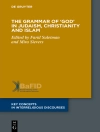On the seventh day, God rested and thus completed his creation. Likewise, man should rest on the seventh day and every seven years leave the fields fallow to rest. If you like, a divine economic and environmental programme is encountered here. 'Subdue the earth’ is not to be misunderstood as a mandate to subjugate and exploit, but on the contrary as a call to preserve God’s 'very good’ creation. Its current explosiveness illustrates precisely this fundamental relationship. Even secular circles now speak of the 'integrity of creation’ as a matter of course. And in Muslim countries, scholars and activists are preparing to launch a 'green Islam’, based of course on Quranic principles. At the same time, faith communities and churches with their commitment to nature and to a just world of work are moving into the concrete focus of public attention and are serious players in the current discourse. Reason enough, then, to get to the bottom of the concept of 'environment’ in the world religions. How do religions position themselves on the ecological question? What are the foundations of their decisions? And can they make a significant contribution to the current problem and to the enquiries of many people?
O autorze
Christoph Böttigheimer und
Wenzel Maximilian Widenka, KU Eichstätt.












